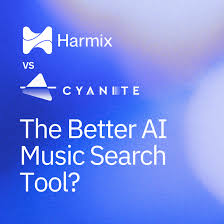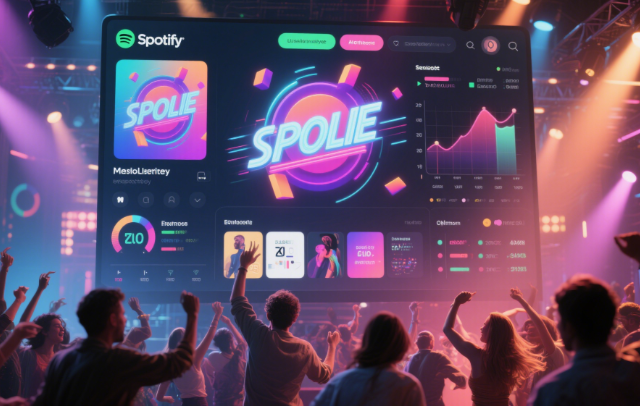Introduction: The Magic Behind Personalized Playlists
Ever wondered why Spotify or Apple Music always seems to know what song you’ll love next? Behind every “Discover Weekly” or “Daily Mix” lies an intricate network of AI-driven music recommendation systems designed to understand your tastes—even before you do.
This article breaks down the core technologies behind these systems, why they’re so accurate, and how artists can benefit from understanding how AI recommends music in today’s streaming economy.

?? What Are AI-Driven Music Recommendation Systems?
An AI-driven music recommendation system is a technology that analyzes listener behavior, song features, and context using artificial intelligence to suggest songs a user is likely to enjoy.
These systems go beyond simple genre matching—they learn:
What time you like upbeat music
Which artists you return to often
The rhythm or mood that resonates with you
?? Goal: Deliver personalized playlists that feel curated just for you.
?? How Do AI Music Recommendation Systems Work?
1. Collaborative Filtering
This method recommends songs based on similarities between users.
?? If Person A and Person B have similar listening patterns, and Person B liked a new track, the system might recommend that same track to Person A.
Used by: Netflix, Spotify, Deezer
2. Content-Based Filtering
This technique recommends music based on attributes like:
Tempo
Key
Genre
Instruments
Mood (e.g., “sad indie” or “energetic pop”)
?? AI models like MusicNN and OpenL3 extract these features from the audio itself.
3. Hybrid Models
Most platforms today use a hybrid approach—combining collaborative filtering, content-based filtering, and deep learning.
?? Spotify’s algorithm considers:
Audio features (danceability, energy, valence)
Your skip rate
Playlist positions
Social trends
This results in finely tuned playlists that evolve as your taste evolves.
4. Deep Learning & Neural Networks
Modern systems use convolutional neural networks (CNNs) to analyze raw audio and recurrent neural networks (RNNs) to track your listening sequence over time.
?? These advanced models power services like YouTube Music’s “Your Mix” by adapting to your habits in real-time.
?? Real-World Example: Spotify’s Recommendation Engine
Spotify is one of the best-known platforms using AI-driven music recommendation systems.
Here’s a simplified breakdown of how it works:
| Component | Function |
|---|---|
| Collaborative Filtering | Finds users like you |
| Natural Language Processing | Analyzes blogs, articles & reviews for trends |
| Raw Audio Analysis | Extracts features like tempo and timbre |
| Human Curation | Blends in editorial content |
?? Why These Systems Matter for Listeners and Artists
For Listeners:
?? Personalization: Get songs that match your mood or situation
?? Time-saving: No more endless searching
?? Discovery: Find hidden gems and indie artists
For Artists:
?? Exposure: Get surfaced to new listeners via algorithmic playlists
?? Data feedback: Know which songs perform best
?? Targeting: Focus marketing on algorithm-friendly engagement (e.g., skip rates, saves, playlist adds)
?? The Future of AI in Music Recommendations
| Upcoming Innovation | Impact |
|---|---|
| Context-aware AI | Suggests music based on time, weather, or activity |
| Emotion-detection via sensors | Tailors songs to your mood or facial expression |
| Voice-driven recommendations | "Play something to help me focus" → Personalized result |
| Cross-platform listening graph | Combines behavior across Spotify, YouTube, etc. |
? Frequently Asked Questions (FAQ)
Q1: How does AI know my favorite genre or mood?
A: AI systems analyze your listening history, the features of songs you like, and how you interact with them—such as skipping or saving tracks.
Q2: Are AI music recommendations always accurate?
A: Not always—but as you use a platform more, its predictions become increasingly tailored. Systems improve with data.
Q3: Can artists "game" the algorithm to get recommended more?
A: Not directly. But improving metrics like completion rate, playlist adds, and saves can increase algorithmic visibility.
Q4: What are some AI tools musicians can use for recommendation-style feedback?
A: Platforms like SoundCloud Repost, Spotify for Artists, and Chartmetric offer insights into how recommendation engines promote music.
?? Final Thoughts: Letting AI Guide the Soundtrack of Our Lives
AI-driven music recommendation systems are no longer futuristic—they’re fully integrated into how we discover and consume music daily. By understanding how these systems work, both listeners and artists can make smarter choices.
Whether you're curating your next focus playlist or promoting a new single, AI is your silent partner in music discovery.







